The big man in red might get all the glory, but there’s someone here in South Yorkshire without whom Christmas might not be so magical.
His black boots are covered in mud, not soot, he carries loppers rather than a sack of presents, and in place of a sleigh is a shiny red tractor.
No, it’s not Santa, it’s Stenton. Andrew Stenton, aka Farmer Christmas.
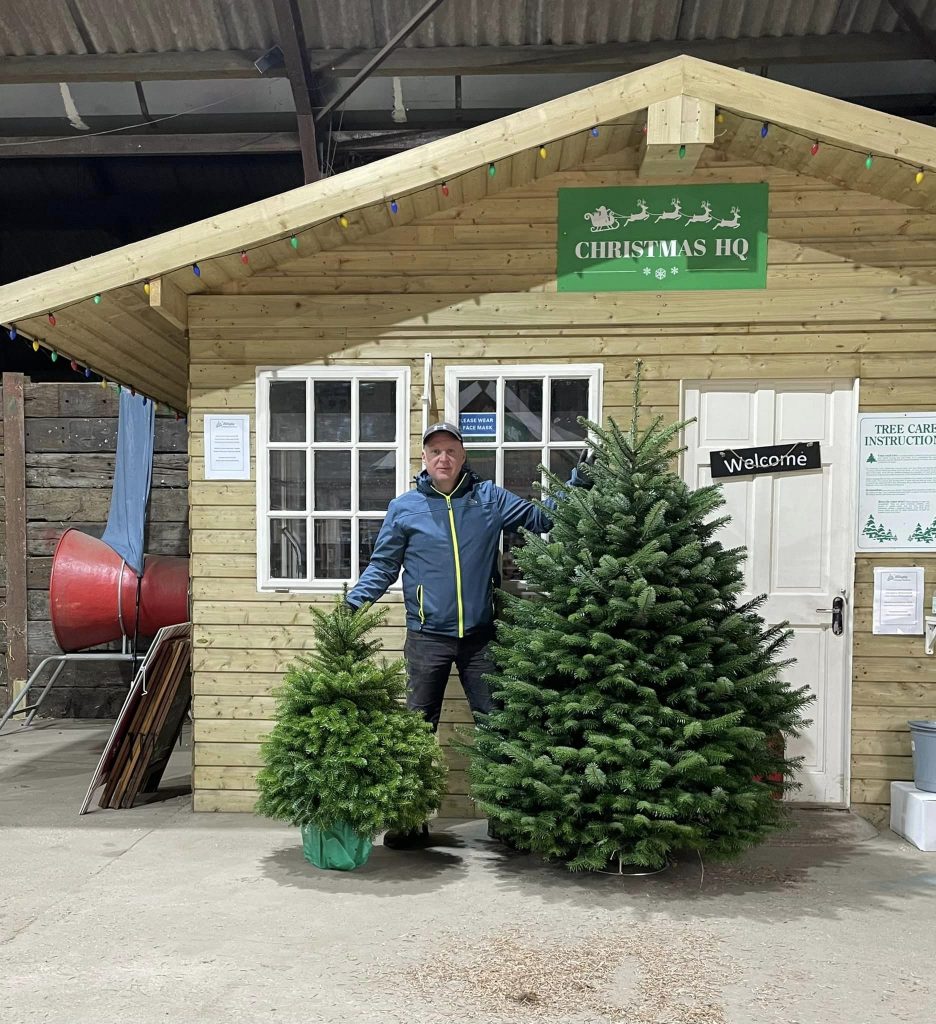
Third-generation farmer Andrew is the brains behind Billingley Christmas Tree Farm. Every year, thousands of families flock to this small village between Darfield and Goldthorpe to pick their own festive fir, visit Santa’s grotto, and see the real reindeer that live at Billingley.
But the trees grown at Billingley don’t just end up trimmed up as centrepieces in houses. Wherever you see a real Christmas tree this year, be it in a town centre, outside a hospital or football stadium, even those sold in garden centres and farm shops, chances are it’s been grown at Billingley.
Billingley Christmas Tree Farm sells thousands of trees each year to individuals, businesses and organisations across the country.
Their customer base includes grand stately homes like Wentworth Woodhouse, Chatsworth House, and other English Heritage and National Trust properties.
Footballers from clubs such as Rotherham United come each year to pick the trees that will stand outside the stadium and in the executive suites.
Their trees are regularly used in film and magazine shoots, appearing in the likes of Doctor Who, Still Open All Hours and Country Living magazine. Clothing brands like Fat Face, Regatta and Next have called upon Billingley to supply trees for their Christmas campaigns.
Andrew also works with councils up and down the country, from County Durham to Wales, shipping these beautiful 30-foot-tall trees destined to bring joy to towns and city centres.
So, how did this humble family farm in the Dearne Valley become a leading grower and retailer of Christmas trees?
It was the foot and mouth disease outbreak in 2001 that would see Andrew turn his family farm’s fortunes around by making the decision to switch from pedigree cattle to Christmas trees.

The family had been cattle farmers since the late 1950s when Andrew’s grandad, Sydney Stenton, started a dairy farm in 1957. Sydney leased the land at Hall Farm from the Fitzwilliam Wentworth Estate, and son Michael soon joined him.
Under Michael’s management, they branched into arable farming, with wheat, barley and bean crops.
Andrew grew up around the farm, watching his parents, Michael and Anne, rearing livestock, lugging hay bales around, and ploughing on with the highs and lows of farming life.
“As a kid I was obsessed with growing things. I used to make my own greenhouses and see what I could grow. I also bred rabbits and would bike it over to the garden centre at Darfield to try and sell them for £2 a piece,” Andrew says.
After leaving school, Andrew studied agriculture at Bishop Burton College whilst also working on the farm. He returned full-time in the early 1990s, after Sydney died, and decided to pursue his interest in breeding Charolais cattle, a breed of French pedigree cows known for their curly white coats. Their livestock were very successful and won most of the big agricultural shows. Andrew was even invited to judge competitions in France.
“It was all I wanted to do. But then foot and mouth disease hit, and the business ceased practically overnight. We had lines of bulls that were meant for farms in Perth in Scotland but the livestock lockdown meant we couldn’t move any of them. We lost thousands of pounds.”
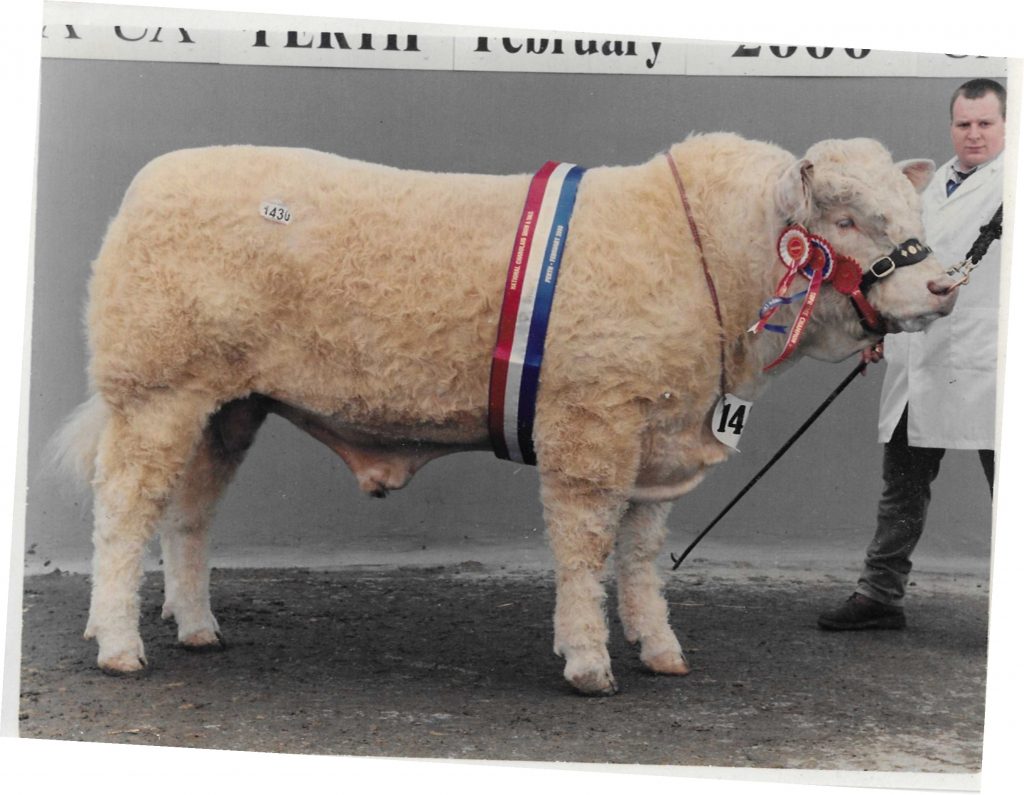
The Stentons needed to diversify. But how? It was a customer up in Perth that suggested selling real Christmas trees.
“We were told there was a good markup on them and they were relatively low risk, so why not try it. We bought a few trees to sell and my wife Sally and I did a homemade sign that we stood at the end of the drive. We were shocked at just how fast they sold.
“I remember I rang Barnsley Council from our spare bedroom and asked them if I could supply their main Christmas tree for the town centre. I quoted them £80 and told them I couldn’t do it any cheaper than that. I’d no clue about pricing.”
However, it was clear that demand was there. Andrew was onto something. He had that spark that Christmas trees would be the thing to keep their business going.
The initial plan had been to just buy and sell Christmas trees. But in their second year, Andrew decided to plant a few trees to make the farm look festive. Fast forward 20-odd years and the farm is covered in 50,000 trees from baby saplings to gigantic trees that have been growing for the last decade or more.
Along with their family farm at Billingley, Andrew now manages hundreds of thousands of Christmas trees across various sites. There are another 20,000 at their second farm in Marr, and they oversee Christmas trees on country estates such as Sutton Bank and Duncombe Park in the North York Moors.
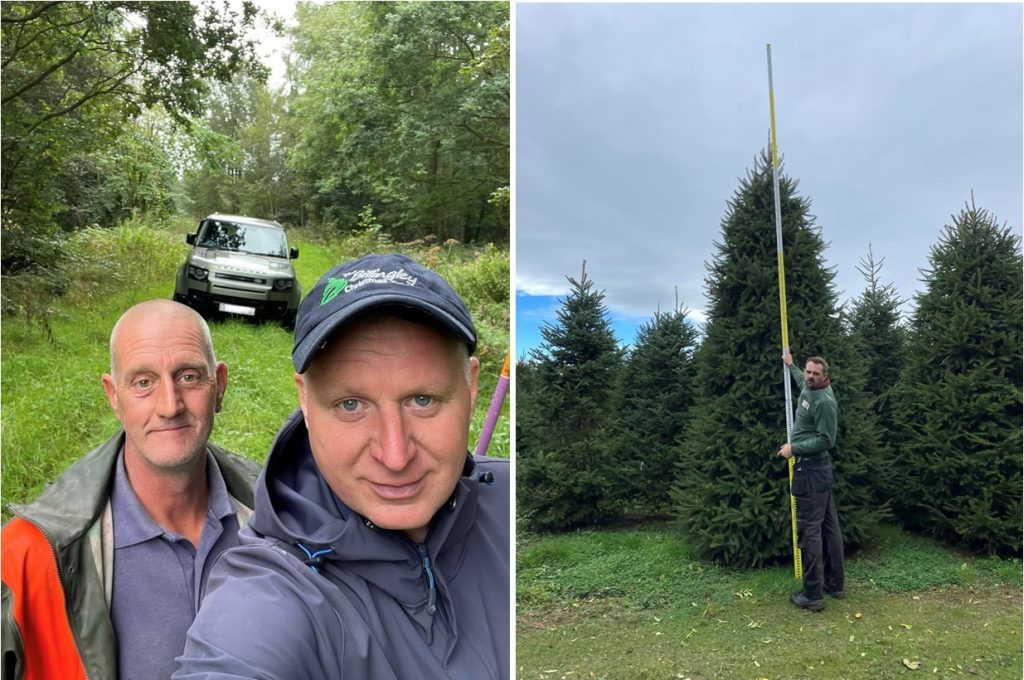
Surprisingly, for an operation as involved as this one, the team is small, with just Andrew, wife Sally, and two other full-time staff, Adrian and Chris.
“Adrian and I went to college together and I used to give him lifts back to Barnsley. He joined us here in our second year selling Christmas trees and has been by my side ever since. Chris manages our arable crops that are also a big part of what we do. And Sally is intrinsic to the business. She does all the office stuff like invoicing, managing accounts and dealing with our wholesale customers.
“During our peak season, we do have a few more staff to help us pack trees. Mum and Dad retired about ten years ago but they come in every year to help over the busy festive period. And our three kids, Abbie, Tilly and William, all get stuck in as well when needed.”
Santa might have one busy day out of the year, but at Billingley Christmas Tree Farm there is never a quiet day. Andrew and his team work constantly throughout the year, doing many tasks by hand.
“We have a few weeks after Christmas to do some dusting down but then the planting starts again in February March time. We plant three-year-old baby trees, known as transplants, that come from Denmark or Germany. They get put in the gaps between the stumps left behind from the trees felled at Christmas. For every tree we cut, we plant another in its place.”
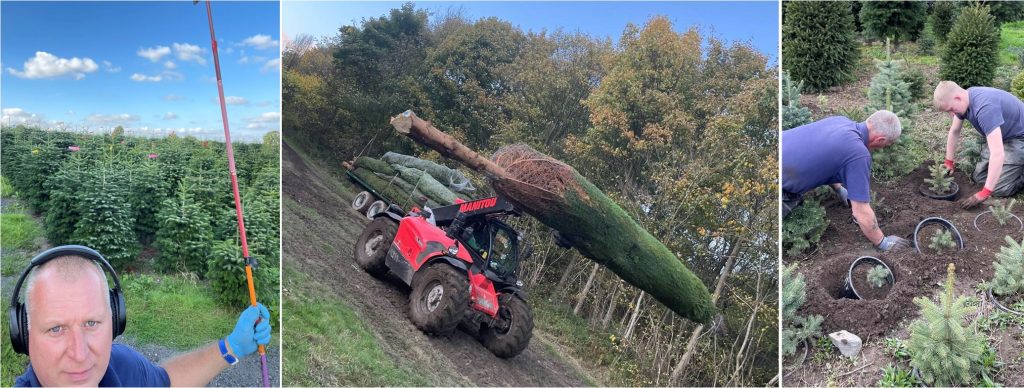
Importing these transplants has become another area of the business. When we visited, Andrew told us how they were expecting a delivery of 14,000 transplants from Denmark that would then be sent to other growers across the country.
From these spiky saplings do the mighty Christmas trees grow – albeit in six to eight years’ time.
They grow six varieties of Christmas trees including the customer favourite Nordmann Fir with its glossy appearance, and the traditional Norway Spruce. There are also Fraser firs popular in the US, Blue Spruce, Lasiocarpa Spruce, and a range of Blue Whistle trees native to Korea.
“This year has been ideal weather for growing Christmas trees; not too dry or hot and not too much rain either. But it’s not been as good for the arable crops that we still have here.”
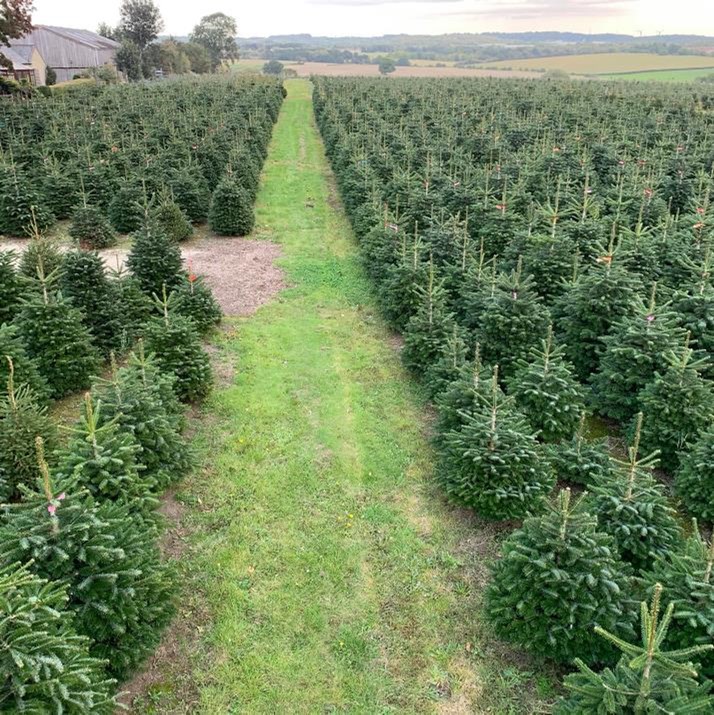
The weather might play a part, but their bountiful crops are also down to sheer hard work. It’s not a case of planting trees and watching nature take its course. The work is labour intensive, with weed and pest control, pruning, propagating, and checking the soil’s PH levels just some of the daily tasks.
They’ve spent more than twenty years in this industry and continue to progress, developing new methods and ensuring the Billingley team have the know-how to keep trees in their best possible condition.
For their commitment to producing high quality trees, Billingley have won numerous awards, including best Norway Spruce and best container grown tree at the British Christmas Tree Growers Association Awards. This year, they were asked to host the annual event and welcomed TV’s Yorkshire Vet, Peter Wright, to the farm in October.
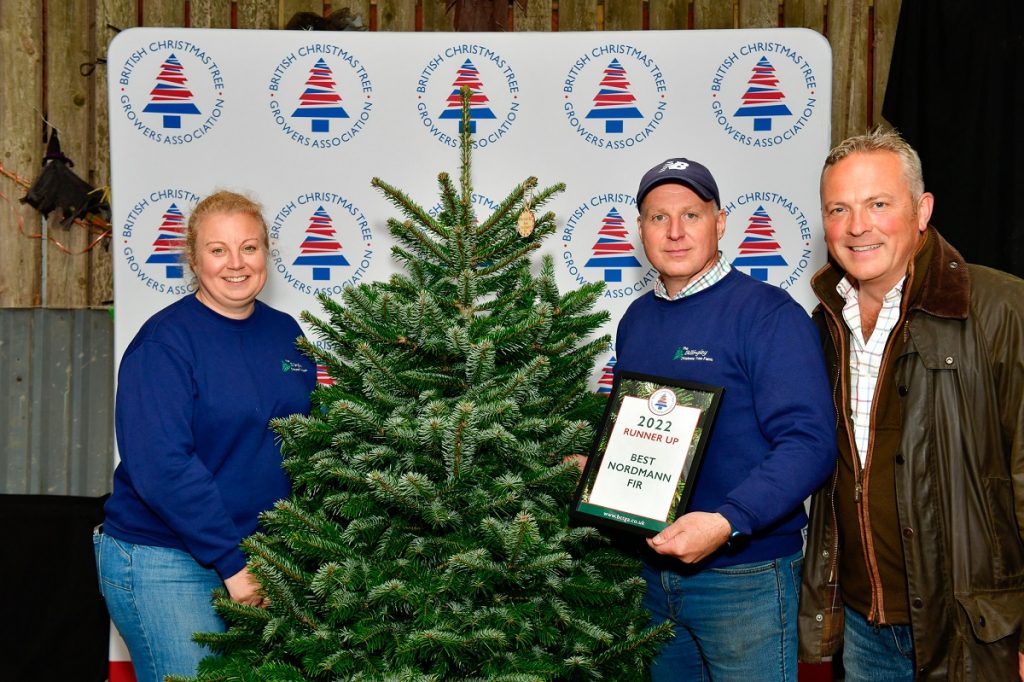
With thousands of trees on site, all growing at different stages, you might be wondering how they work out which ones will be for sale each year.
From September onwards, Andrew and Adrian spend a month or so assessing the quality and height of the trees. They tag which ones are bound for commercial homes like hospitals or hotels, which ones will be going to wholesale, and which ones will be available for visitors to buy direct from the farm.
In October, they open their VIP ticket sales, an idea that was started in the Covid lockdown of 2020. The sale of Christmas trees was given a stay of execution in Parliament, so businesses could remain open if they sold Christmas trees.
“The idea was to pre-book a time slot which helped us keep within social distancing guidelines. But the following year we were inundated with requests customers to do it again.”
November is when the farm opens for people to come and choose their tree at their leisure. The whole site is turned into a magical experience, with yuletide joy a plenty.
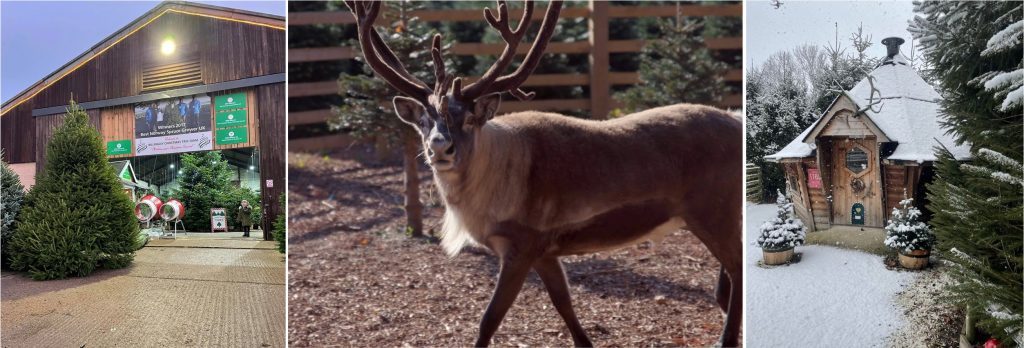
There’s a sleigh stop for hot drinks, and the most charming grotto with twinkling lights, roaring fire, and Mr and Mrs Claus waiting to greet children.
Visitors can also meet the farm’s resident animals, with two pygmy goats, two donkeys, and four reindeers named Alta, Aspen, Clint and Cupid.
By early December, for anyone who hasn’t yet bought their tree, they fill their two large barns with cut trees that can be taken home the same day, along with a selection of baubles and decorations.
Then after Christmas, they even offer a recycling service where trees are chipped and spread back onto the crops, aiding their sustainable practices.
Maybe amongst it all, the Stentons might get chance to enjoy their own family Christmas. No guesses where they get their tree from…






